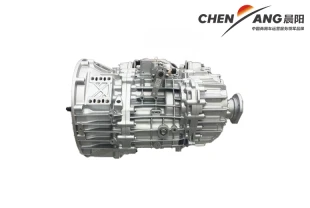engine timing chain
Understanding Engine Timing Chains Their Importance and Maintenance
The engine timing chain is a crucial component in internal combustion engines, serving as the critical link between the crankshaft and the camshaft(s). It is responsible for synchronizing the movement of these components, ensuring that the engine's valves open and close at the right times during each cylinder's intake and exhaust strokes. This synchronization is essential for optimal engine performance, efficiency, and longevity.
What is a Timing Chain?
A timing chain is typically made of a series of metal links, resembling a bicycle chain, designed to withstand high tension and wear over time. Unlike a timing belt, which is made of rubber and requires replacement at set intervals, a timing chain is generally more durable and can last the lifetime of the engine if properly maintained. However, this does not mean it is immune to failure. Over time, timing chains can stretch or become damaged due to various factors, including inadequate oil lubrication, contamination, or manufacturing defects.
Importance of Timing Chains in Engine Performance
The precise timing of the valve movements, controlled by the timing chain, is crucial for various engine processes. Proper timing maximizes fuel efficiency and power output while minimizing emissions. If the timing chain is not functioning correctly, it can lead to several issues, including poor engine performance, increased fuel consumption, and even severe engine damage. In extreme cases, a failed timing chain can cause the engine's pistons to collide with the valves, resulting in catastrophic failure that often requires extensive repairs or engine replacement.
Signs of Timing Chain Problems
Recognizing the early signs of timing chain issues can save you from costly repairs. Some common symptoms include
1. Unusual Engine Noises A rattling noise coming from the engine can indicate a loose timing chain or worn tensioner. 2. Poor Engine Performance If your vehicle experiences a decrease in power, acceleration problems, or rough idling, this could signify timing chain misalignment.
engine timing chain

3. Check Engine Light Modern vehicles are equipped with various sensors that monitor engine performance. A check engine light could indicate a timing chain problem, and it’s essential to scan the vehicle's computer for trouble codes.
4. Engine Vibrations Excessive vibrations while idling could indicate that the timing chain is not functioning effectively.
5. Oil Sludge Poor maintenance can lead to oil sludge buildup, which affects the timing chain's movement. Regular oil changes help mitigate this risk.
Maintenance of Timing Chains
Maintaining a timing chain involves ensuring the engine is properly lubricated and that oil changes are performed at regular intervals. Engine oil plays a vital role in lubricating the timing chain and reducing friction. It is also essential to check the tensioner periodically, as a faulty tensioner can lead to chain slippage or stretch.
Some manufacturers recommend replacing timing chains at specific intervals, while others specify that they can last the engine's lifetime. It's advisable to consult the vehicle’s owner manual for specific recommendations. Additionally, performing regular engine checks can help catch any potential issues before they develop into significant problems.
Conclusion
The engine timing chain is a critical element in the performance and reliability of an internal combustion engine. Awareness of its importance, recognizing the signs of potential failure, and adhering to a regular maintenance schedule are crucial steps in ensuring engine longevity. By taking good care of your timing chain, you can avoid costly repairs and enjoy smooth and efficient engine operation for years to come. Remember that when in doubt, consulting with a professional mechanic can provide insights and guidance tailored to your specific vehicle and its needs.
-
SINOTRUK HOWO 84 Electric Dump Truck for Eco-Friendly Heavy HaulingNewsJul.26,2025
-
The Fast 16-Gear Manual Transmission Assembly for Heavy TrucksNewsJul.25,2025
-
Mercedes Benz Actros 1848 42 Tractor Truck for Sale - Reliable PerformanceNewsJul.24,2025
-
High-Quality Water Pump Assembly for Sinotruk Trucks – Durable & ReliableNewsJul.23,2025
-
Premium Truck Engine Antifreeze Coolant Fluid for Heavy Duty VehiclesNewsJul.22,2025
-
FOTON View G7 Mini Bus: Affordable & Spacious TransportNewsJul.22,2025
Popular products

























